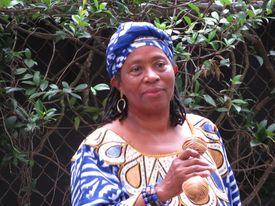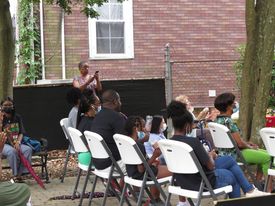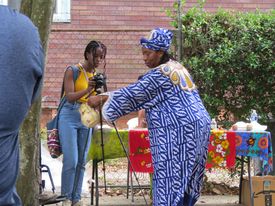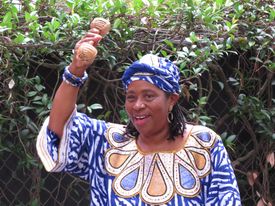Perhaps, the most important aspect of this celebration is educating oneself about Juneteenth; specifically, fully understanding the significance of emancipation and the struggles that African Americans and marginalized groups have endured in the past and present regarding discrimination and Civil Rights. For instance, I attended the Junteenth celebration at the Savannah African Art Museum. Part of teaching the public about this occasion involved the sacred process of Libations to honor and praise African ancestors. The celebration also featured moments of communal participation by performing with shakers and drums in unison (including some readymade versions of percussive instruments via found objects).
Regarding more about music, many have taken this moment to compile playlists from different Black artists and genres that reflect upon the impact of Juneteenth. Pianist Lara Downes has provided a fitting list of tracks that span from pop to classical and jazz. In terms of musicology or ethnomusicological research through preservation, I refer to a point that I address in my research about the Gullah Geechee: one that I cannot stress enough. Demonstrating cultural respect and tact, especially in the era of social media, matters: not using Juneteenth as an opportunity to distort its meaning. Those wishing to know more about the African American past from those who personally experienced enslavement can consult resources at places like the Library of Congress. I find the archival audio recordings related to the topic a slightly better alternative to the textual transcripts provided by the Works Progress Administration (WPA) Federal Writers' Project from the 1930s and 40s. That is because audiences get to hear the voices of the informants and not the researcher trying to "speak for" the people. And, as always, researchers must remember to respect the privacy of the informants who have been recorded and the privacy of their possible descendants.




 RSS Feed
RSS Feed
